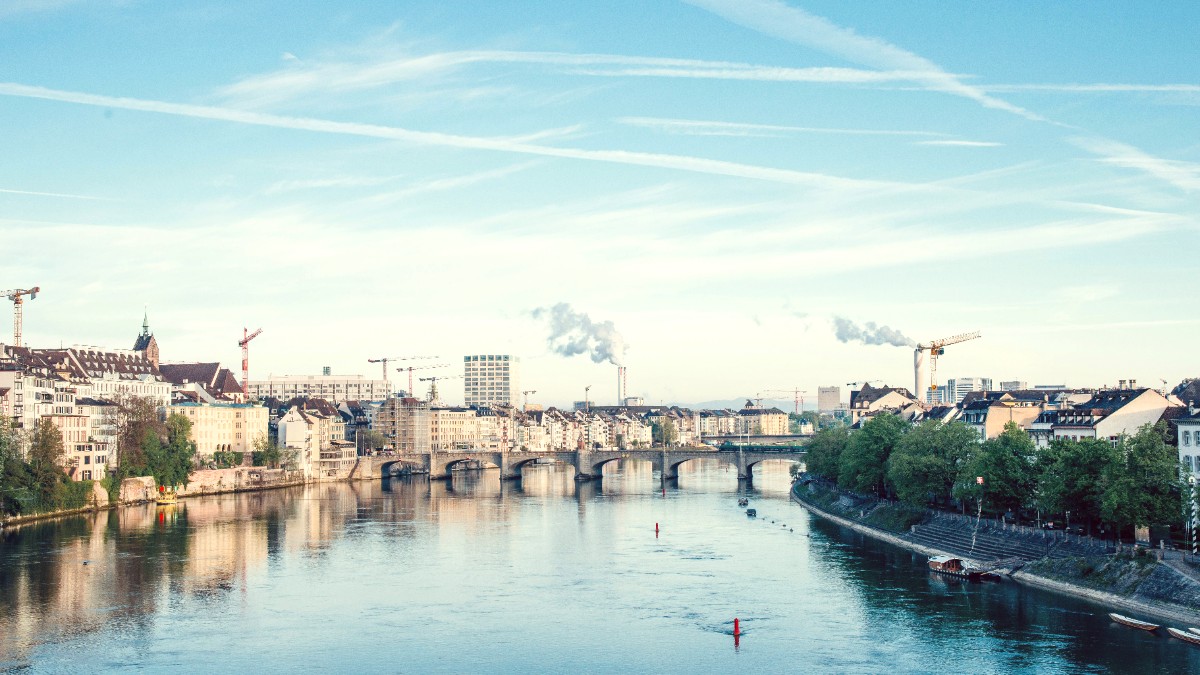
Northern Switzerland, Switzerland
Spring (March-May) brings mild temperatures (5°C-15°C) and fresh air. Evenings remain cool. Moderate precipitation is possible. Summer (June-August) has warm temperatures (15°C-25°C), occasionally exceeding 30°C. Thunderstorms are possible. Long daylight hours allow for extended outdoor activities.
Autumn (September-November) offers cool, crisp weather (5°C-15°C). Precipitation decreases late autumn. Days are pleasant for city exploration. Winter (December-February) brings cold temperatures (-1°C-5°C). Snowfall is possible, especially in January and February. Clear, sunny winter days offer striking views.
Basel does not experience monsoons or hurricanes. Extreme temperatures are rare, but summer heatwaves occur. Pay attention to hydration. Winter months bring icy conditions on sidewalks. Wear appropriate footwear.
Always check the local weather forecast closer to your travel dates for current information.
(June-August, December)
Warm weather for outdoor activities, all attractions open, Basel Christmas Market (Dec).
Accommodation and flight prices highest, crowded attractions, potential heatwaves.
(April-May, September-October)
Pleasant temperatures, fewer crowds, lower prices, beautiful scenery.
Weather less predictable, higher chance of rain, some reduced hours.
(November, January-March)
Lower prices for travel and lodging, fewer tourists, authentic experience.
Cold weather, shorter daylight, some attractions limited hours.
Cultural exploration and museum visits are suitable year-round. Shoulder seasons (spring and autumn) provide comfortable indoor conditions and fewer crowds. Outdoor activities like walking, cycling, Rhine cruises, and swimming are best from late spring to early autumn (May-September). Rhine swimming is popular and safe from June to August.
For Christmas Markets, plan your visit between late November and December 23rd. Fasnacht (Carnival) occurs in February or March, beginning the Monday after Ash Wednesday. Dates change annually. Book accommodation well in advance if you plan to attend Fasnacht for an unparalleled cultural immersion.
Year-round, shoulder seasons recommended for comfort.
June to August, for warm water and safe conditions.
May to September, for pleasant weather.
Late November to December 23rd.
February or March, dates vary annually.
Switzerland is part of the Schengen Area, which simplifies travel for many nationalities.
Citizens of many non-EU/EEA countries need a Schengen Visa for stays up to 90 days. Citizens of the United States, Canada, Australia, New Zealand, the United Kingdom, and others do not require a Schengen visa for short stays.
Starting mid-2025, visa-exempt travelers will need an ETIAS travel authorization. This is a pre-travel authorization for security, lasting three years or until passport expiry.
For visa assistance and flight compensation, several services are available.
Switzerland is known for its high cost of living, and Basel mirrors this. Manage expenses with smart strategies.
The official currency is the Swiss Franc (CHF). While surrounded by Eurozone countries, the Euro is generally not accepted or exchanged at unfavorable rates. Obtain Swiss Francs for purchases.
ATMs are widely available at EuroAirport and major train stations. They offer competitive rates. Major credit cards (Visa, MasterCard, American Express) are accepted almost everywhere. Consider a Travel money belt for security.
Daily estimate: CHF 70-120 (~$75-130 USD), excluding international flights. This budget includes hostel dorm beds (CHF 30-50), supermarket groceries or street food (CHF 20-40), and public transport or walking (CHF 10-20).
Utilize free Basel Card for transport.
Limited restaurant meals.
Daily estimate: CHF 150-250 (~$160-270 USD). This budget includes mid-range hotel rooms or private Airbnbs (CHF 80-150), casual restaurant meals (CHF 50-80), and public transport or occasional taxis (CHF 15-25).
Enjoy some museum entries with Basel Card discounts.
Fine dining only occasionally.
Daily estimate: CHF 350+ (~$380+ USD). This budget includes luxury hotels (CHF 200+), fine dining (CHF 100+), and taxis or private transfers (CHF 30+).
Unlimited access to attractions and exclusive experiences.
Budget constraints minimal.
| Category | Item | Price Range (CHF) |
|---|---|---|
| Accommodation (per night) | Hostel Dorm / Budget Hotel / Mid-range Hotel / Luxury Hotel | 30-50 / 80-120 / 120-200 / 200-500+ |
| Meals | Coffee / Bakery / Budget Lunch / Mid-range Main Course / Fine Dining (excl. Drinks) | 4-6 / 3-7 / 10-15 / 25-40 / 70-150+ |
| Transportation | Single Ticket / Day Pass (TNW Zone 10) | 3.80 / 9.30 |
Switzerland is very safe with high-quality healthcare. Basic precautions ensure a smooth trip.
No specific vaccinations are required for entry. Ensure routine vaccinations are up-to-date (MMR, Diphtheria-Tetanus-Pertussis, Polio, Varicella).
Sun can be strong; use High-SPF sunscreen. Drink plenty of water; tap water is safe. Carry a Reusable water bottle.
If hiking in wooded areas, wear long pants and check for ticks. TBE vaccination is optional for rural areas.
Swiss healthcare is high-quality but expensive.
Pharmacies are widely available, marked by a green cross. Many have English-speaking staff. For after-hours emergencies, find the nearest emergency pharmacy.
Tap water is safe and excellent to drink. Food hygiene standards are very high in Basel. Eat street food from reputable vendors without undue concern.
Emergency numbers: 112 (General), 144 (Ambulance), 117 (Police), 118 (Fire).
Recommended for many international travelers (food/waterborne, blood/bodily fluids).
Consider if spending significant time in rural, forested areas, especially in warmer months.
Available but expensive; for non-urgent issues, consult your regular dentist before travel.
Switzerland has a very low crime rate. Basel is generally very safe. Violent crime is rare.
Travel insurance is highly recommended due to high medical costs. Ensure comprehensive coverage.
Medical emergencies, medical evacuation/repatriation, trip cancellation/interruption, lost/delayed baggage, personal liability.
Report loss to local police immediately to get a police report. Contact your country's embassy or consulate in Bern or Zurich for emergency travel documents.
Compare different international travel insurance options like World Nomads or SafetyWing.